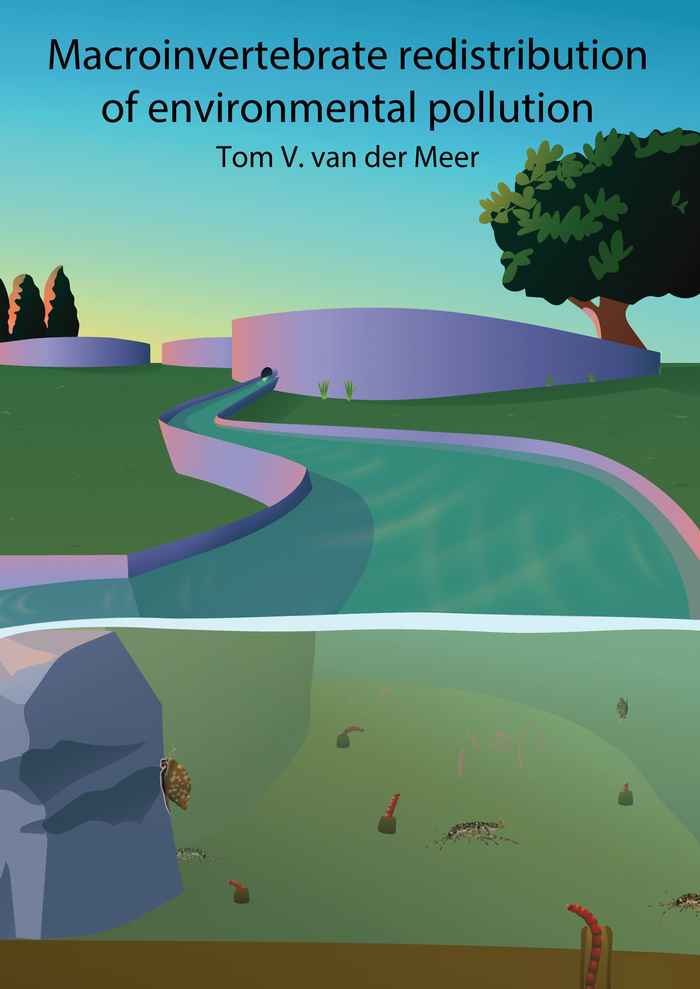PhD defence ceremony by Tom van der Meer
- Date
- 4 October 2023
- Time
- 14:00
- Location
- Aula - Lutherse kerk

Macroinvertebrate redistribution of environmental pollution
WWTPs produce enormous amounts of excess sludge and nutrient rich effluent. Removal of excess sludge makes up a large part of WWTP operational costs, while contaminated and hypertrophic effluent may negatively impact the aquatic environment. Thus, new techniques are required that limit the amount of excess sludge and strongly reduce nutrient concentrations in the effluent. Macroinvertebrates may be able to reach such objectives, as they play an important role in the degradation of organic matter in organically rich and saprobic aquatic environments. Multiple taxa of collector gatherers feed on detritus, and together with their bioturbation, they can have a large impact on the distribution of nutrients and contaminants in these aquatic systems. Multiple experiments have been performed to study the effectiveness of the degradation of WWTP sludge by (combinations of) several macroinvertebrate taxa, including tubificid worms, asellids, snails and chironomid larvae. Most macroinvertebrate taxa enhanced sludge degradation, and this degradation could be further increased in multi-taxa setups. Enhanced sludge degradation was, however, not always observed, which was linked to higher and different contaminant profiles of the sludge. Macroinvertebrates also altered the distributions of nutrients as well as contaminants in a WWTP environment, with their feeding and bioturbation activity affecting these distributions to a larger extend than their bioaccumulation. Apart from degrading sludge, invertebrates, such as dreissenid mussels, can also efficiently remove effluent-cultured algae from effluents, and can thus function as a post-treatment nutrients' polishing step of WWTP effluent. Hence, this thesis shows that macroinvertebrates are not only affected by their environment, but that their activities can also shape the environment surrounding them. This interaction between invertebrates and their environment may be harnessed to create an extra polishing step for WWTP sludge and effluent, and contribute to an improvement of surface water quality.